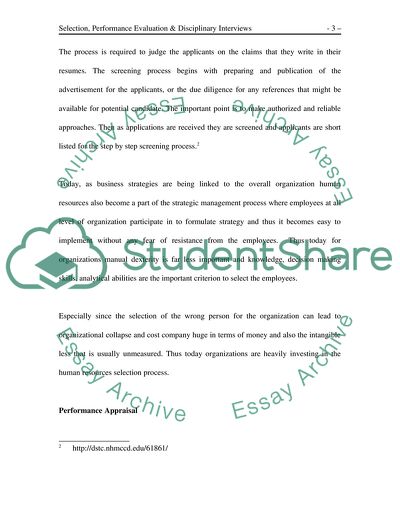Cite this document
(Selection, Performance Evaluation & Disciplinary Interviews Assignment, n.d.)
Selection, Performance Evaluation & Disciplinary Interviews Assignment. Retrieved from https://studentshare.org/human-resources/1541892-hightlight-the-similarities-and-differences-in-conducting-selection-performance-appraisal-and-disciplinary-interviews
Selection, Performance Evaluation & Disciplinary Interviews Assignment. Retrieved from https://studentshare.org/human-resources/1541892-hightlight-the-similarities-and-differences-in-conducting-selection-performance-appraisal-and-disciplinary-interviews
(Selection, Performance Evaluation & Disciplinary Interviews Assignment)
Selection, Performance Evaluation & Disciplinary Interviews Assignment. https://studentshare.org/human-resources/1541892-hightlight-the-similarities-and-differences-in-conducting-selection-performance-appraisal-and-disciplinary-interviews.
Selection, Performance Evaluation & Disciplinary Interviews Assignment. https://studentshare.org/human-resources/1541892-hightlight-the-similarities-and-differences-in-conducting-selection-performance-appraisal-and-disciplinary-interviews.
“Selection, Performance Evaluation & Disciplinary Interviews Assignment”, n.d. https://studentshare.org/human-resources/1541892-hightlight-the-similarities-and-differences-in-conducting-selection-performance-appraisal-and-disciplinary-interviews.


